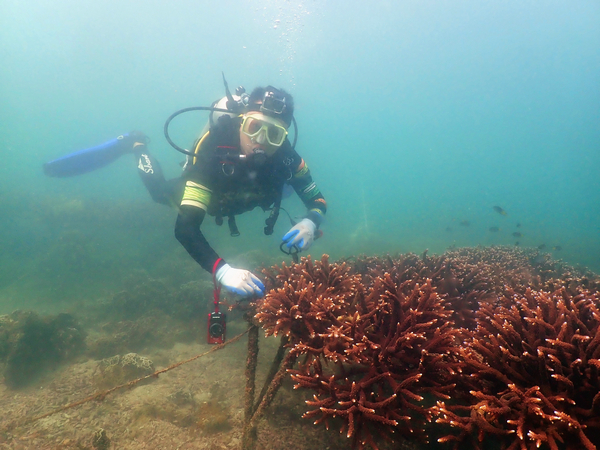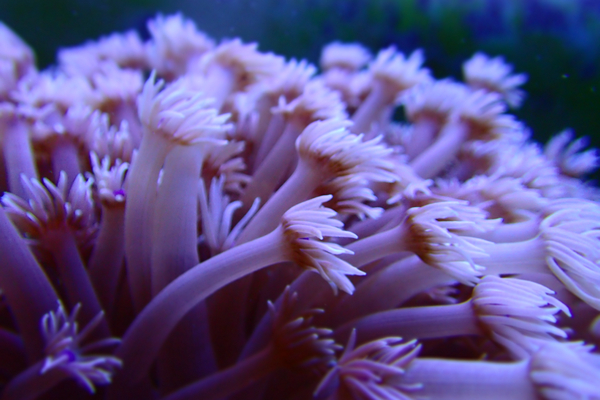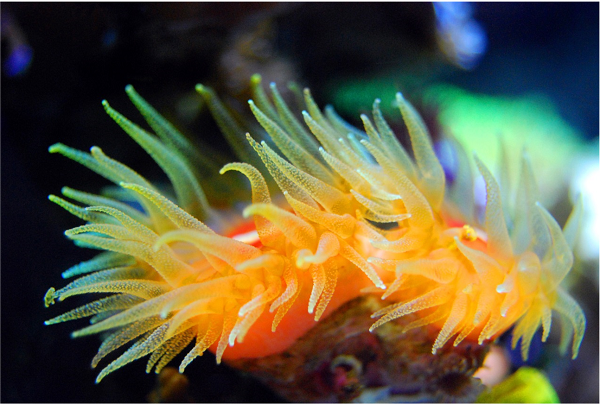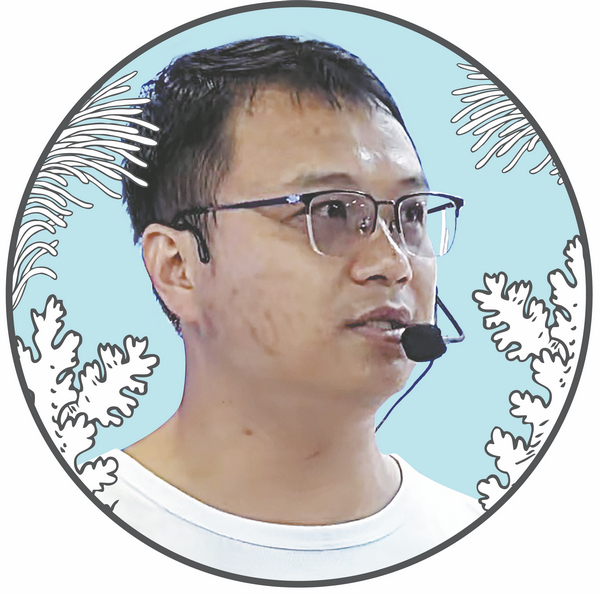https://www.chinadaily.com.cn/a/202405/22/WS664d3566a31082fc043c865c.html


Huang Wen is inspecting the growth of corals at Weizhou Island, South China's Guangxi Zhuang autonomous region in 2021.CHINA DAILY
Coral conservationist Huang Wen and his team spearhead efforts to restore and protect coral ecosystems off the coast of Weizhou Island in South China.
At nine in the morning, Huang Wen begins his day by diving from a ship into the waters off Weizhou Island in Beihai city, South China's Guangxi Zhuang autonomous region. There, he carefully attaches broken coral branches to seedbeds as part of his daily routine for coral reef restoration.
As a 36-year-old associate professor at the School of Marine Sciences at Guangxi University, Huang has been leading coral reef restoration efforts on Weizhou Island for nine years.
Under his guidance, the team has so far successfully propagated more than 10 coral species and over 50,000 individual corals, marking significant progress in their restoration work.
Huang earned his doctorate at the Institute of Oceanography under the Chinese Academy of Sciences, specializing in aquaculture and molecular biology techniques. "I knew nothing about coral reefs before taking this job, but once you start something, you must strive for results," he said.

CHINA DAILY
Huang's fascination with coral reefs began during his diving trips in Malaysia, where he encountered a vibrant underwater world that, according to him, resembled a divine aquarium, adorned with colorful coral. Those trips left a lasting impression on him.
"I remember my first dive underwater at Weizhou Island in 2015. I was so disappointed to find low coral coverage, almost barren," recalled Huang, explaining why he joined the university's team to make a change.
Since the 1950s, global coral reef degradation has become increasingly severe, posing a significant threat to their survival.
"Coral reefs are the 'Great Wall' of the seabed, capable of withstanding 70 to 90 percent of wave impacts. Without the protection of coral reefs, the sandy coastal rocks are easily eroded," explained Huang.
He further emphasized that coral reefs are the "rainforests of the sea", covering only 0.2 percent of the ocean area but providing habitat for 30 percent of marine life.
After extensive investigations and research, Huang and his team discovered that Weizhou Island, due to its relatively high latitude location, could potentially be a "refuge" for coral "babies "amid global climate warming.
Huang's daily routine includes planting coral underwater, nurturing seedlings, and carefully monitoring coral growth after transplantation.
To improve his underwater coral planting skills, Huang acquired the Advanced Open Water Diver (AOW) certification from Scuba Schools International, one of the world's top scuba diving agencies. He has completed over 600 dives so far.

CHINA DAILY
In November 2022, he took charge of an ecological restoration project for the coral reef on Weizhou Island, led by Guangxi University and supported by the National Ecological Restoration Fund. This project oversees a 30-hectare restoration zone — 150 times larger than the area Huang was working on at that time.
Currently serving as deputy director of the Guangxi Laboratory on the Study of Coral Reefs in the South China Sea, Huang has led advancements in land-based coral aquaculture and marine cultivation techniques. His team's achievements in coral population genetics, temperature adaptation mechanisms, and reef restoration demonstrate their dedication to marine conservation.
As Huang intensifies conservation efforts, his presence on Weizhou Island has become increasingly pronounced, spending nearly 200 days there in 2023 alone.
Balancing responsibilities between academia and fieldwork, Huang and his team diligently transport equipment, including seedbeds and artificial reefs, to support coral restoration endeavors.
"It is difficult to use mechanical equipment on the beach, so we can only rely on manpower, which is quite demanding," said Huang.
Up to now, the team has established three nursery zones where they have set up 120 seedbeds, 200 fiberglass reefs, 500 large cement reefs, and transplanted over 40,000 coral seedlings.
Their persistent efforts have resulted in a survival rate of over 80 percent for coral in the northern restoration zone, fostering thriving coral colonies that attract diverse marine life.
Beyond his roles as a researcher and educator, Huang is also the director of the Coral Museum on Weizhou Island, where he promotes coral conservation education among students.

Huang Wen
The museum, a collaborative project between the School of Marine Sciences at Guangxi University and the Weizhou Island Tourism Management Committee, stands as a premier hub for coral reef research and public outreach in China.
Huang's dedication to marine education extends to delivering more than 80 coral reef lectures at schools, universities, public forums, and science exhibitions, emphasizing the importance of coral reef preservation.
"I hope more individuals will join our cause to protect coral reefs," Huang said. "In the future, our team will continue to update our technology and restore more damaged coral reefs. Once our experience on Weizhou Island matures, we plan to expand it to the South China Sea and even overseas."
